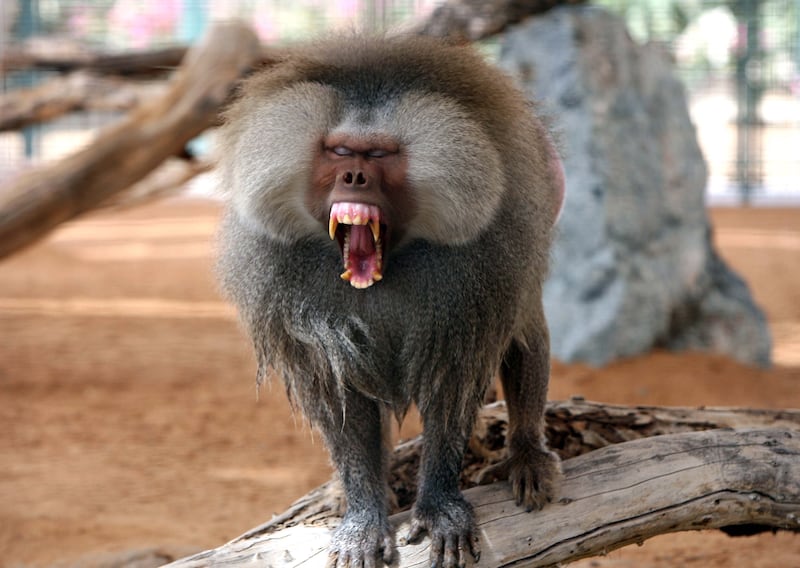A man has been mauled by wild baboons in south-western Saudi Arabia.
The hamadryas baboons attacked the man, identified by local media as Majid Al Ghamdi, in the garden of his home in Al Bahah city, Al Ekhbariyah reported.
His father had been attacked only weeks before.
Mr Al Ghamdi’s neighbours rescued him from the troop of baboons after hearing him cry out.
He was treated for injuries to his arm.
Al Bahah is surrounded by forests and mountains, the baboons’ usual habitat.
But the species, native to Yemen and Saudi Arabia, have been known to stray into urban areas to find food or when their homes are destroyed.
Contact between baboons and human beings is becoming increasingly common in the kingdom. They were even spotted in the capital, Riyadh, last summer.
Officials from the National Centre for Wildlife Development visited the site of the attack on Wednesday and spoke to Mr Al Ghamdi.
The centre has warned residents not to feed the animals, the official Saudi Press Agency reported.
It is studying the impact the animals and their increasing number have on the country.
The centre also urged residents to report sightings of the animals through an online portal to help wildlife officials take necessary action.
Male hamadryas baboons are twice the size of females of the species, weighing about 20-20 kilograms, and develop a large mane after when they become 10 years old.
Ancient Egyptians worshipped the hamadryas baboon, sometimes called the sacred baboon, as the living embodiment of Thoth, the god of the moon and adviser to Ra, the sun god.
Mummified baboons have been discovered in Egyptian tombs dating back to 1550 BC to 1069 BC.







